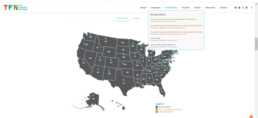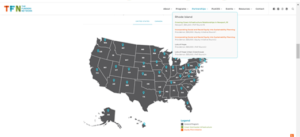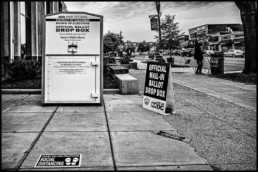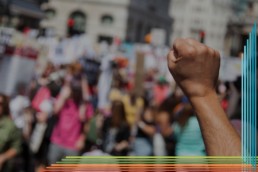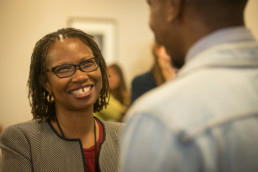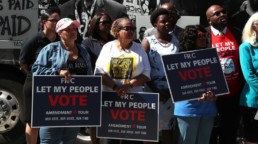TFN Joins Broad Coalition Calling on Senate to Extend Census Data Reporting Deadlines
BY The Funders Network Staff
The Funders Network is among the 370 national, state, and local groups supporting bipartisan legislation to extend the time to get a complete and accurate 2020 U.S. Census count.
The effort was spearheaded by The Leadership Conference on Civil and Human Rights and The Census Project.
"Underscoring the importance and urgency of extending statutory reporting deadlines for apportionment and redistricting data, a diverse and consequential array of local, state, and national organizations urged U.S Senators today to 'to give the U.S. Census Bureau sufficient time to thoroughly implement complex data processing activities and complete the most accurate 2020 Census possible,'” according to a media release announcing the sign-on letter.
The letter urges senators to cosponsor or support the bipartisan 2020 Census Deadline Extensions Act (S. 4571), which would extend the statutory deadlines for delivering apportionment and redistricting data to April and July 2021, respectively, as the administration requested in April 2020.
From the announcement, released Oct. 23:
“'Failure to push back the statutory reporting deadlines is forcing the Census Bureau to cut short critical 2020 Census data processing and quality check operations from the usual five months down to only two and a half months,' the groups stated, stressing the incredibly compressed time frame simply to meet pre-Covid-19 statutory deadlines.
'The Census Bureau’s count of the nation was incomplete, their work is not done, and the 2020 Census is not over,' said Beth Lynk, director of the Census Counts Campaign. 'Perhaps the most critical phase to get a quality count is now underway, but it’s been dramatically cut short as a consequence of counting delays due to Covid-19 disruptions.'"
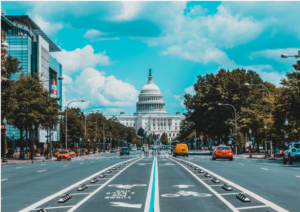
"Mary Jo Hoeksema of the Census Project stated that, 'Data processing activities designed to take 153 days before the pandemic derailed the original plan, now have to be done in 92 days under the accelerated plan. The President asked for an extension in April, and Congress should give the nation the time needed to get the count right.'
The appeal to senators from a broad and diverse collection of stakeholders is rooted in the 10-year consequences for states, localities and even neighborhoods of getting the 2020 count wrong. The letter emphasized that, '…[a] rushed census during a pandemic inevitably will lead to misallocation of political representation, government funding, and private sector investment in every state and community. If data processing operations are not thorough, communities most in need of resources to improve quality of life and standards of living will not receive their fair share for the next decade. Accurate data from the 2020 Census are critical to informed decision-making and resource allocation by the public and private sectors, including preparation for and recovery from natural disasters and public health crises.'"
Read the full letter here.
The Leadership Conference on Civil and Human Rights is a coalition charged by its diverse membership of more than 220 national organizations to promote and protect the rights of all persons in the United States. The Leadership Conference works toward an America as good as its ideals. For more information on The Leadership Conference and its member organizations, visit www.civilrights.org.
The Census Project (https://thecensusproject.org) is a broad-based coalition of national, state, and local organizations and companies that support an inclusive and accurate 2020 Census and American Community Survey (ACS) (the modern version of the census “long form”). Its 800+ member organizations and companies, representing the private, public, non-profit, and academic sectors, rely on objective data that the Census Bureau produces to inform evidence-based investment, policy and planning decisions.
New! Partners for Places Interactive Grants Map & Idea Bank
BY The Funders Network Staff
The Funders Network recently launched a new interactive Partners for Places Grants Map as well as a robust reboot of the Partners for Places Idea Bank featuring a searchable database of completed projects.
Grants Map
Visit the Partners for Places homepage on the TFN website to view interactive Grants Maps for both U.S. and Canadian projects that have been supported by the matching grants program. If you hover over each pinpoint on the map, you’ll see every Partners for Places project located in that community or region. Projects on the map are color-coded to indicate which category of Partners for Places grant support they received: gray for general grants, green for green stormwater infrastructure grants, and orange for projects supported by our Equity Pilot Initiative.
Idea Bank
Each completed project on the map includes a link that will take you to that project’s entry on the Partners for Places Idea Bank. (You can also access the Idea Bank directly via the pulldown menu at the top of the page, or via resource links embedded on the Partners for Places homepage.)
More than 100 completed Partners for Places projects are featured in the Idea Bank, including a description of the project, matching funders, lessons learned and additional resources. (See image below.) Adding to the functionality: The Idea Bank allows you to filter searches by focus area. Just click on the tags such as “Climate and Energy” or “Equity and Empowerment” to pull up all the projects tagged with those key areas.
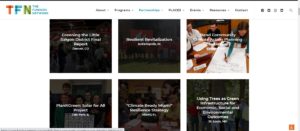
Those of you who have been engaged with Partners for Places for some time may recall an earlier iteration of the Idea Bank created several years ago. This rebooted version incorporates interactive and searchable functionalities that allow for a deeper and more comprehensive way to explore grantee projects and appreciate the impact these grants have had over the past decade.
We hope you’ll take a moment to visit TFN’s new website to learn more about these new features: the Grants Map on the Partners for Places homepage as well as the Partners for Places Idea Bank.
If you have any questions or feedback about the Grants Map and Idea Bank, please reach out to TFN Director of Communications Tere Figueras Negrete at tere@fundersnetwork.org.
About Partners for Places
Partners for Places general grant program is supported by The JPB Foundation, Kendeda Fund, The Kresge Foundation, New York Community Trust and the Pisces Foundation.
To date, Partners for Places has awarded more than $7.5 million across North America in this successful matching grant program, leading to over $16 million in investments.
To read about the latest round of Partners for Places matching grant recipients, visit here.
To learn about the latest round of Partners for Places Mini Grants, visit here.
Partners for Places was has been featured in Inside Philanthropy. Read the most recent story here.
For questions about the Partners for Places Mini Grants or matching grants program, please reach out to Ashley Quintana.

Mobility Fund Catalyzes More than $700,000 in Grants to Support Transit, Biking and Walking Advocates
BY Martha Roskowski, TFN Mobility and Access Collaborative
Eight mobility advocacy groups will receive a total of more than $700,000 supporting their work for sustainable and equitable transportation amid the mounting crises of systemic inequities and the coronavirus pandemic. The first round of the new Mobility Fund leveraged contributions of $351,000 from national funders with equal or greater matches from local foundations.
“We are pleased to support the Mobility Fund and public transit advocates advancing more equitable and environmentally beneficial transportation solutions,” said Brendon Slotterback, Midwest Climate and Energy program officer for the McKnight Foundation, an investor in the national fund. “These grants provide a lifeline to organizations working to protect and enhance individuals’ ability to get to work, medical appointments and other critical destinations and services.”
The current transit crisis disproportionately impacts people of color, people under economic distress and essential workers. Advocates working to protect, preserve and enhance transit, biking and walking at the local level face financial challenges due to the pandemic. The Mobility Fund bolsters these groups and builds local philanthropic support for transportation. The need is great, however. The fund received 26 proposals in the pilot round totaling $1,221,550 in requests.
“This is a rapid response philanthropic investment in a key intersection of transportation, equity and climate,” said Lina Fedirko, Senior Associate on the Transportation Team at the ClimateWorks Foundation, another investor in the national fund. “We’re excited to join partners in supporting the local advocacy infrastructure necessary to push for emissions free, equitable transportation.”
Other national funders for the pilot round include the SRAM Cycling Fund, and The Summit Foundation. “The Mobility Fund grants are matched by local foundations who understand the importance of mobility,” said Darryl Young, Director of the Sustainable Cities Program at The Summit Foundation. “More than 40 local foundations stepped up to offer local matching funds, including 11 funders new to the groups. We thank them for partnering with us.”
Grants provide both general organizational support and collaboration support to strengthen ties between community groups that advocate for mobility.
Grantees from the 2020 round of the Mobility Fund and their matching funders are:
Boston Cyclists Union ($50,000) Advancing Boston’s Sustainable Transportation Plan: To speed implementation of the city’s transportation blueprint, Go Boston 2030, through community organizing. This effort will support Boston’s “Healthy Streets” initiative to quickly implement tactical interventions that improve bus travel and connect bike routes and make short-term fixes permanent. It will also bring a focus on equity and transportation justice to Healthy Streets. Matching Funders: The Helen & William Mazer Foundation; Barr Foundation ($50,000)
East Metro Strong, Minnesota ($37,000) Support Mobility Through Transit + Carshare: To bolster transit ridership by increasing awareness of the ability to use transit and carshare together, and the benefits of doing so. East Metro Strong will collaborate with HOURCAR, the region’s non-profit carshare service, Metro Transit, and community-based organizations, to design and spread messages that produce these results. Matching Funder: The Carolyn Foundation ($37,000)
LINK Houston ($50,000) Seeking Houston’s Shift to Equitable Transportation: To increase transparency around racial disparities and empower communities through engagement and data-informed analysis designed to hold local government accountable for equitably planning and implementing transportation improvements for people in the Houston region. Matching Funders: Frank & Cindy Liu Family Foundation; Energy Foundation; Houston Endowment; Jeffrey Cohen Charitable Gift Fund ($50,000)
Our Streets Minneapolis and Move Minnesota ($37,000) Minnesota’s Climate-Sustainable and Equitable Transportation Pathway: To transform mobility across the state of Minnesota by building deeper relationships and engaging partners to create a long-term campaign and work plan to raise additional funding for a full-scale campaign in 2021. Matching Funder: Saint Paul & Minnesota Foundation ($37,000)
Ride New Orleans ($40,000) Equitable Transit for COVID and Beyond: To secure an equitable new transit network using the framework of a soon-to-finish network redesign process, Ride New Orleans. This effort will create targeted strengthening of the transit supporter coalition, a focus on priority community groups and business leaders, and enhanced communications. Matching Funder: Greater New Orleans Foundation ($40,000)
San Francisco Bicycle Coalition ($47,500) Creating Safe Streets in the Tenderloin: To build on extensive community partnerships in the Tenderloin neighborhood that will pilot a community-based, non-policing approach to improving transportation safety in the neighborhood, and advocate for a transformative increase in Slow Streets and car-free space throughout the Tenderloin. Matching Funders: Anonymous; Tenderloin Community Benefit District ($47,500)
Transportation Alternatives ($50,000) Avoiding Carmageddon in New York City: To equitably expand: 1) a citywide network of multi-use car-free streets called Open Streets; 2) secure more miles of busways and bike lanes; 3) refine policy and grow micromobility use, including bike share and e-bikes/e-scooters; and 4) keep the City accountable to Vision Zero. Matching Funders: Lily Auchincloss Foundation; Laurie M. Tisch Illumination Fund ($50,000)
Transportation Choices Coalition, Washington State ($40,000) Coalition Building for a Transit-Oriented Recovery: To bring together transit, walk and bike advocates, transit agencies, transportation departments, sustainability and environmental justice organizations, land use and planning organizations, social services and social justice organizations, labor, community based organizations, and Native people in weekly video meetings to focus on COVID response, emerging issues and updates, and to strategize on a just, transit-oriented recovery. Matching Funders: Hiller Family Fund; Jean Johnson; Sustainable Communities Funders, via Seattle Foundation; The Bullitt Foundation; Thread Fund; The Satterberg Foundation ($40,000)
($40,000)
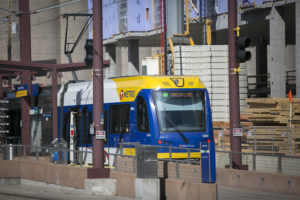
About the Mobility Fund
The Mobility Fund is a new matching grant program hosted by Global Philanthropy Partnership. The long-term goal of this fund is to increase access to and use of active transportation modes and public transit.
The immediate goal of the fund is to meet the urgent need for safe alternatives to public transportation as Americans commute in a pandemic. It seeks to support advocacy efforts for: (1) optimizing transit capacity and safety; (2) recovery funding for transit; and (3) walking and cycling for trips that have shifted off of transit during the recovery period.
About the Mobility and Access Collaborative
The Mobility Fund was conceived and is guided by the Mobility and Access Collaborative, an initiative of The Funders Network. The collaborative is working to reduce transportation related greenhouse gas emissions while eliminating the underlying historic and current inequities in the mobility system. It is led by a core group of staff from foundations who are shaping and guiding work on transportation, including the Barr Foundation, the Bullitt Foundation, The George Gund Foundation, Houston Endowment, TransitCenter, and The Summit Foundation.
About the Author
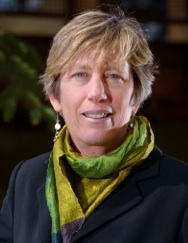 Martha Roskowski is the program lead for the Mobility and Access Collaborative, an initiative of The Funders Network. She is the founder of Further Strategies, a consulting firm based on Boulder, Col. For more information about the Mobility Fund or the Mobility and Access Collaborative, contact Martha Roskowski
Martha Roskowski is the program lead for the Mobility and Access Collaborative, an initiative of The Funders Network. She is the founder of Further Strategies, a consulting firm based on Boulder, Col. For more information about the Mobility Fund or the Mobility and Access Collaborative, contact Martha Roskowski
at martha@furtherstrategies.com or 303-895-0951.[/vc_column_text][/vc_column][/vc_row]
Accessible & Inclusive: The Funders Network's new web features for special needs and learning accommodations
BY The Funders Network Staff
The Funders Network is committed to creating an inclusive and accessible environment for our members and others — including in the digital space.
In this age of social distancing and remote work set-ups, we are all spending more time than ever engaging in the online world. That's why it's even more important than ever to ensure online platforms are able to provide information and resources in ways that allow equitable access for users of varying abilities and learning needs.
In keeping with that commitment, we've taken steps to make The Funders Network website accessible and compliant with Web Content Accessibility Guidelines (WCAG 2.1), Americans with Disability Act website requirements and guidelines and s508 compliance.
As noted by ADA.gov, “poorly designed websites can create unnecessary barriers for people with disabilities, just as poorly designed buildings prevent some people with disabilities from entering. Access problems often occur because website designers mistakenly assume that everyone sees and accesses a webpage in the same way.”
Our website includes features that enable users to adjust the design and user interface of the website to provide accessibility and accommodations for a variety of needs.
Depending on the setting you select, the application offers:
- Screen-reader optimization for blind users.
- Keyboard navigation optimization for the motor impaired.
- A stop to all flashing animations that may contribute to seizures.
- Highlight bar that limits onscreen distractions for those with ADD/ADHD (and other learning styles were limited visual clutter is helpful.)
- User interface and design adjustments for the visually impaired, including the ability to change font size and color settings.
How to Use
To see our accessibility application in action, click on the orange accessibility icon on the bottom right corner of The Funders Network website. (You'll see this icon at the bottom right of your screen, regardless of where you are on our site.)

When you click on the orange accessibility icon, you'll see a menu that allows you to customize your experience on the site based on your needs and preferences.
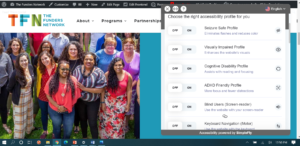
If you continue to scroll down on our accessibility menu, you'll see additional options that allow you to customize the user experience on our site, including the ability to change font size, color saturation and the size of the mouse cursor — to name just a few options.
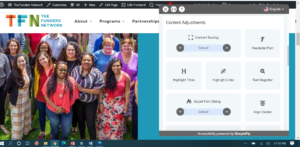
Please keep in mind that increasing font size may require you to adjust the setting on your computer monitor or use the horizontal scroll bar on your screen in order to read the full text.
About the TFN Website
This new feature comes as TFN continues to improve how we connect and engage with our members and others across the sector. This summer, we launched the new TFN website with host of resources that will help you better navigate TFN’s rich offerings of programs and resources, including a new section devoted to our approach to racial equity, a digital library featuring our most recent publications, and an interactive membership map to better identify potential connections in your region. TFN has worked with SimpleFly Creative, a Miami-based, Latinx-led graphic design firm, to create our website. If you have any questions or feedback about the TFN website, including the new accessibility features, please contact TFN’s Director of Communications Tere Figueras Negrete at tere@fundersnetwork.org.
The Funders Network Supports 'Call to Uphold American Democracy During Tense Election'
By The Funders Network Staff
The Funders Network's President and CEO Pat Smith is among the more than 100 philanthropic leaders calling for leaders at all levels of government and across all sectors to ensure a free, fair, and safe election.
The letter, which includes signatures from leaders representing a range of ideological viewpoints, presses for safe elections with all votes tallied and the result respected peacefully.
The letter was circulated by the Democracy Funders Network, a coalition of grant makers, and Philanthropy for Active Civic Engagement. It was published Oct. 19 on Medium and was also featured in a recent story by the Chronicle of Philanthropy.
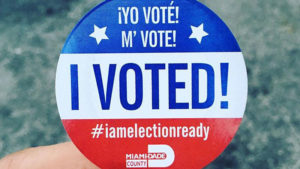 “
“
"These are giant warning signs for American democracy, for civil society, and for most of the issues about which philanthropy is concerned,” the letter says. It urges politicians, civil-society leaders, media companies, and everyday Americans to ensure “the sacred right to vote is upheld and the norms of representative democracy transcend partisanship.”
"To achieve this objective, we call upon leaders at all levels of government and sectors of society to uphold their obligations to democracy during this intensely partisan time," reads the letter.
The calls-to-action listed in the letter ask that people:
- Ensure that all eligible voters are able to vote and to have their votes counted. Any efforts to suppress votes — including along racial lines — or to thwart or overturn the will of the people are anti-democratic and unacceptable.
- Support efforts and advance messages that uphold the safety and integrity of the electoral process. Unfounded claims about voter fraud or the illegitimacy of the election do irreparable harm to the centerpiece of our democracy.
- Forcefully and consistently condemn all forms of political violence. Our leaders should be doing everything in their power to de-escalate rather than encourage violence.
- Commit to respect the peaceful transfer of power or the continuation of power, pending the final results of the election, which will take time to tabulate. This norm is a hallmark of American democracy, and the American people should not be left to wonder whether a candidate for public office will refuse to accept the results of a free and fair election.
To read the full letter as well as the list of signatories, please visit the original post: Philanthropic Leaders Call to Uphold American Democracy During Tense Election
Save the Date: The Funders Network's 2021 Virtual Conference
BY THE FUNDERS NETWORK
In these uncertain times, we are all doing our best to prioritize the wellbeing of those we care about and the communities we serve.
For this reason, The Funders Network has decided to move our 2021 Annual Conference to an all-virtual format.
We hope you will mark your calendars for TFN 's 2021 Virtual Conference: Rise Together, March 15 to 17.
It is precisely because we are in such uncertain waters that it is essential that we take the time to seek out the meaningful connections, strategies and inspirations that fuel and support your work as grantmakers.
While we had originally hoped to come together — in person — in New Orleans, we will nonetheless find ways to lift up and learn from this amazing and resilient community as part of our virtual conference.
We are also seeking ways to minimize the economic impact of this decision, and will be highlighting opportunities to support local New Orleans vendors, artists and community causes as part of our conference offerings.
In the meantime, we would like to share that due to the impacts of Hurricanes Sally, Laura, Delta, and Tropical Storm Marco, the Greater New Orleans Foundation — one of our conference sponsors — has activated its Disaster Response and Restoration Fund to provide assistance to those who are most in need.
Our heartfelt thanks to the local New Orleans funders and community voices who took part in our recent planning sessions.
We are delighted to share that Carmen James Randolph, vice president for programs at the Greater New Orleans Foundation, and Tené Traylor, Atlanta fund advisor at The Kendeda Fund, will serve as co-chairs of TFN's 2021 Virtual Conference.
Stay tuned for more information on our sessions, speakers and other highlights. Please read on for more information about our conference theme and our efforts to center racial equity in our work.
About #TFN2021: Rise Together
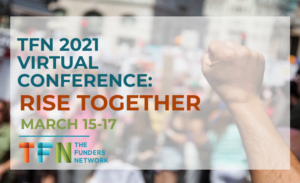
TFN's 2021 Virtual Conference: Rise Together will create a virtual space for funders to explore the strategies and stories that are creating more equitable, sustainable, and resilient places to live — work that has taken on increased urgency as we face the dual challenges of a global pandemic and structural racism.
TFN’s mission is to leverage philanthropy’s unique potential to help create communities and regions that are sustainable, prosperous and just for all people. But we recognize that these goals cannot be achieved without first challenging and confronting the systemic imbalances in power, privilege and access to resources that disproportionately impact communities of color, specifically Black people, and create stark inequities that continue to harm racialized and marginalized people and places.
In keeping with our 2021 Virtual Conference theme — Rise Together — we've encouraged session ideas that are interdisciplinary, cross-cutting and grounded in racial equity.
In the weeks ahead, we'll be sharing more details about our conference offerings and learning agenda designed to lift up and explore some of the most urgent questions of the day:
How do we help communities address and overcome the impacts of the novel coronavirus in ways that are urgent and equitable?
How can we help dismantle the systemic racism that touches every aspect of our lives, including the food we eat, the air we breathe, the water we drink, and the places where we live, work and play?
And how do we use our privilege and power, as a sector and as individuals, to amplify calls for racial justice in ways that are meaningful, effective and authentic?
We hope you'll join us as we learn together, work together — and hopefully rise together — to meet this extraordinary and unprecedented moment.
Black & Bold: An interview with Pat Smith of The Funders Network
BY Makiyah Moody, LaPiana Consulting
The Funders Network's President and CEO Pat Smith sat down — virtually, of course — for a conversation for the LaPiana Consulting blog, Black & Bold: Perspectives on Leadership. Black & Bold is "an effort to affirm, promote, and elevate the experiences of Black women who are their ancestors’ wildest dreams," according to Makiyah Moody, senior consultant and lead writer for the blog. (TFN engaged with LaPiana as part of our strategic planning process.) Below is an excerpt from the Black & Bold blog post featuring Pat's conversation with Makiyah. To read the full post, visit here.
Tell me about your current role?
I am the president and CEO of The Funders Network (TFN), a membership organization of 170 funders from across the U.S. and Canada, including national, regional, and community foundations. I learned after joining TFN that we have a significant number of community foundations as members. As you know, we recently completed the refinement of our strategic direction and homed in on what TFN wants to be as it grows. (Disclosure: La Piana Consulting facilitated TFN’s strategic planning process.) We are a 20-year-old organization and excited about where we have landed.
As a philanthropy serving organization (PSO), the challenge for the sector and TFN is how do we begin to really develop the next generation – the next courageous generation of philanthropic leaders – equipped to bring about racial justice and a just society. As we go through this period, philanthropy cannot continue what it has been doing and expect different outcomes. How can we be different as a sector? Doing work differently requires people coming together and figuring that out. I am seeing more and more calls for participatory grantmaking, meaningful community engagement, and not just tokenism: increased interactions with government and the private sector to find common ground; asking tough questions about the role of racism in our society, and to what extent philanthropy also perpetuates inequities. The idea of decolonizing wealth has led to many conversations. We need to bring others in to help figure out what needs to be done, creating space to learn, reflect and act.
If there was a soundtrack of greatest hits that reflect how you go about your work, what would make the list?
India Arie’s “Strength, Courage and Wisdom”: These are crazy times. When I don’t have clarity about where I need to be, where the work needs to go, or how I need to do it, I play this song often.
Nina Simone’s “Young, Gifted and Black”: I am excited by the younger voices coming to the fore in philanthropy. For me, TFN’s PLACES Fellowship exemplifies the next generation of philanthropic leadership and they inspire me.
I love jazz. One of my favorites is Miles Davis’ album, Kind of Blue, especially the track “All Blues.” Many think of only sadness when they hear the phrase I got the blues; I think of resilience, courage, and the history of our people…the expressive art about their struggles and strivings.
Sweet Honey in the Rock’s “Ella’s Song”, which is a tribute to Ella Baker who is considered the mother of the Civil Rights Movement. She worked with MLK, John Lewis and without question she was the tactical organizer for SNCC, or Student Non-Violent Coordinating Committee. She understood movement-building, community organizing and the leadership role of peoples’ voice in their struggles.
I love the phrase: “We who believe in freedom cannot rest.” It is just as important today in this moment. It can be overwhelming at times. You may just want to throw in the towel or leave the country, yet we who believe in freedom cannot rest.
The other lyric that resonates with me is: “The older I get the better I know that the secret of my going on is when the reins are in the hands of the young, who dare to run against the storm.” This lyric reminds me of the Black Lives Matter movement, the protestors, and young people running against the storm. I believe in the vision and activism of young people. My role – philanthropy’s role – is how do we support them as they run? How do we relinquish the reins of power and support the next generation of leaders?
Work in the social sector can be very personal and linked to one’s values. Can you think of a time when your values were in tension and how you reconciled that tension or not?
I have held leadership positions in government with the City of Philadelphia, including leading a major mayoral initiative where I was often in community. For me it was often challenging to see all that needed to be done, knowing that government may not be able to resolve the problems despite my best efforts.
The tension comes into play when entering a church basement for a community meeting knowing that I might not have the answer or resources at my disposal and being honest about that fact. It’s not about simply saying no we can’t do this –too often we are too quick to say no. Sometimes it’s about acknowledging constraints as a first step in the problem-solving process.
With Obama’s election, there were all these high expectations, which caused me to think about how to engage people with integrity and not mislead them. I am not a believer in false promises (“Hey, we can do that”). I aim to be clear and transparent about what I can and cannot do which requires honest conversations about limits and where those limits are. “These are the constraints. Here’s why. Maybe we can figure this out together.”
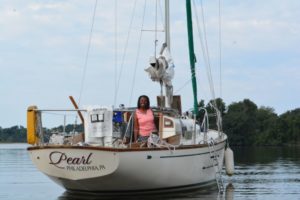
Can you share an experience in the workplace where you have had to reclaim your time? What was the context? How did you navigate it?
I am terrible at carving out space for me. I often allow work to bleed into the rest of my life and that has been a challenge. I’m a workaholic who is always thinking about what needs to be done next. That means that sometimes I’m not rooted in the present or enjoying the moment. This has been a lifelong struggle where I am trying to be more intentional about self-care.
Read the full Q&A blog post here.
GCIR: Philanthropy Must Confront Our Country's History of Racist Immigration Policy
BY Grantmakers Concerned with Immigrants and Refugees (Cross Post)
The Funders Network's President and CEO Pat Smith has signed to a recent statement from Grantmakers Concerned with Immigrants and Refugees urging the philanthropic sector to acknowledge — and work to address — the systemic racism that has informed U.S. immigration law and policies. This op-ed by GCIR President Daranee Petsod was originally published in the Chronicle of Philanthropy on Sept. 23. TFN is proud to sign on in solidarity to this powerful call-to-action. To read the full list of signatories, visit the GCIR statement page here .
GCIR Statement
The murder of George Floyd and the Covid-19 pandemic have forced philanthropy to reckon with racism and its deadly disparities.
As our sector considers how we can play a role in shaping a more just and equitable future, we must confront our own roots in white supremacy and the profound ways in which historical inequities continue to manifest themselves today — in funding policies and practices; underinvestment in efforts aimed at dismantling structural racism; and underrepresentation of Blacks, Indigenous people, and people of color within philanthropic leadership.
Philanthropic discussions on racism are long overdue, and they must expand to include immigration because the two issues are inextricably linked. Indeed, the current policy separating immigrant families is rooted in the same racist ideology behind boarding-school policies that tore apart Indigenous families and the slave trade that devastated Black families.
As philanthropy confronts our country’s history of genocide and slavery, our sector must also wrestle with hundreds of years of racist immigration policies — from the 1790 law that allowed only “free white people” to naturalize, to the Chinese Exclusion Act of 1882, to the Muslim and African bans and exclusion of undocumented immigrants from federal Covid-19 relief in the Trump era.
Anti-immigrant policies in recent years didn’t just come out of thin air. Private philanthropy has financed hate groups substantially and consistently over decades to develop an expansive playbook for reducing immigration by people of color. These hate groups often frame their arguments in seemingly rational and measured ways, sometimes even co-opting progressive language on population, the environment, and racial justice.
But make no mistake: Masquerading behind innocuous terms such as “demographics” and “economics” are the same xenophobia and racism that have driven immigration policy and plagued our society for generations. They demonize, dehumanize, and criminalize immigrants, and they intentionally pit immigrants and Black Americans against one another, aiming to derail our collective efforts to fight injustice.
A recent letter to the editor the Chronicle published exposed two such examples of white supremacist ideology disguised as reasoned perspectives on immigration. Its authors offered a concrete example of how a foundation with a record of bankrolling white nationalist voices and anti-immigrant organizations is not to be believed when it claims to be a proponent of legitimate debate on immigration and “serious about addressing systematic and institutional racism.” The letter rightly named the “mainstreaming of white supremacist ideology” as “one of the greatest challenges of our time” and called attention to the role philanthropy has played in “promoting, funding, and sustaining” anti-immigrant hate groups as “organizations committed to white supremacy.”
In doing so, the letter reminds us that in our painful but necessary reckoning with the legacy of racism in this country, we must remain vigilant against false narratives and clear eyed about their motivation: to halt and reverse demographic change.
For philanthropy to truly live our core values of humanity, equity, and justice, there can be no room for hate in our community. It is time for our sector to have tough conversations about the connections between racism, white supremacy, and attacks against immigrants and refugees. To educate ourselves about anti-immigrant hate groups and our nation’s racist immigration policies. To call out, condemn, and put an end to funding for hate groups. To invest deeply and for the long term in organizations working at the intersection of immigration and structural racism. And to hold ourselves and one another accountable in the fight to end white supremacy and achieve justice and equity for all.
Can We Even Do That?!?: Talk elections, advocacy & philanthropy with The Funders Network and Abby Levine of Bolder Advocacy
BY TFN STAFF
Does taking a stand on executive actions qualify as lobbying under federal tax law? Can your foundation talk about candidates, officeholders or proposed legislation on social media? Can private foundations fund nonprofits that lobby?
 As we find ourselves knee-deep in a polarizing election season — and continue to grapple with headline-churning developments impacting everything from healthcare and reproductive rights to national security and environmental stewardship — questions abound about what sort of advocacy foundations can pursue without running afoul of the law.
As we find ourselves knee-deep in a polarizing election season — and continue to grapple with headline-churning developments impacting everything from healthcare and reproductive rights to national security and environmental stewardship — questions abound about what sort of advocacy foundations can pursue without running afoul of the law.
The Funders Network invites you to join Abby Levine, director of the Bolder Advocacy program at Alliance for Justice, for a TFN Learning Call, Can We Even Do That?!?: Advocacy, Elections and Philanthropy on Sept. 30 from 3 to 4:14 p.m. ET.
Join us to learn more about how grantmakers can support advocacy and participate in policymaking decisions, while gaining a deeper understanding of federal tax and election law.
We’ll share the fundamentals of what foundations can and can’t do to support election season activities and other advocacy questions that may be bedeviling your organization at this extraordinary moment in time.
We will also make space for Abby to answer specific questions from our attendees, so be sure to submit any queries in advance when you register for this event.
Can We Even Do That?!?: Advocacy, Elections & Philanthropy
3 to 4:15 p.m. ET
Sept. 30
Register for this funders only webinar here.
About Bolder Advocacy
 Bolder Advocacy, a program of the Alliance for Justice, promotes active engagement in democratic processes and institutions by giving nonprofits and foundations the confidence to advocate effectively and by protecting their right to do so.
Bolder Advocacy, a program of the Alliance for Justice, promotes active engagement in democratic processes and institutions by giving nonprofits and foundations the confidence to advocate effectively and by protecting their right to do so.
Additional Resources
Additional Resources
Bolder Advocacy’s FAQ page offers concrete advice and guidance on a range of election season and policy area questions.
Free technical assistance on advocacy, lobbying and election-related questions is available via the Bolder Advocacy Hotline at 866-NP-LOBBY.
Rules of the Game, a Bolder Advocacy podcast, features attorneys using real examples to demystify these laws to help 501(c)(3) and 501(c)(4) nonprofits be bolder advocates.
Photo credits: Featured image at top, Philanthropy Journal; "I voted" image, Miami-Dade Department of Elections.
Federal Appeals Court Upholds Florida’s “Pay-to-Vote” Scheme (Cross Post)
In a significant reversal that deals a blow to felons' voting rights in the perpetual swing state of Florida, the United States Court of Appeals for the 11th Circuit in Atlanta ruled earlier this month that a Florida law requiring people with serious criminal convictions to pay court fines and fees before they can register to vote is constitutional. Civil liberties advocates have decried the payment requirement as a modern-day poll tax. Below is a blog post originally published by the Equal Justice Initiative.
Since the end of the Civil War, states in the American South have used various schemes to deny Black people the right to vote even though that right is protected by the 15th Amendment. Poll taxes were applied against mostly Black voters to create economic barriers to voting throughout most of the 20th century. The Voting Rights Act was passed to eliminate these barriers in the 1960s.
Since passage of the Voting Rights Act in 1965, the criminal justice system has been used to disenfranchise millions of Americans, mostly people of color. In his dissent, Judge Adalberto Jordan called the LFO requirement—which bars poor people from voting but allows those who can pay to vote—“the antithesis of equal treatment.”
“This ruling runs counter to the foundational principle that Americans do not have to pay to vote,” Julie Ebenstein, a senior staff attorney with the A.C.L.U.’s Voting Rights Project, told The New York Times. “The gravity of this decision cannot be overstated. It is an affront to the spirit of democracy.”
Read the full post: Federal Appeals Court Upholds Florida’s “Pay-to-Vote” Scheme
Featured photo at top: Carline Jean / South Florida Sun Sentinel


